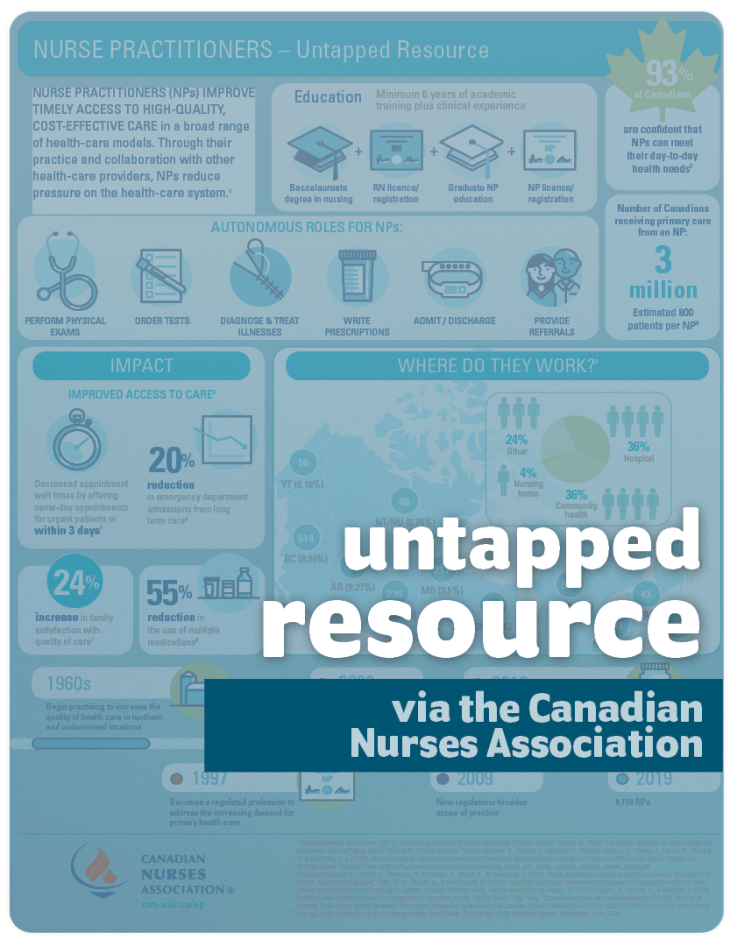Nurse Practitioners (NPs) are RNs with a graduate degree in Advanced Nursing Practice, and an expanded scope of practice that includes diagnosing, prescribing treatments, and managing health conditions.
They work one-on-one with their patients and with other healthcare providers to support injury and disease prevention and reduce overall pressure on the healthcare system.
- Addressing needs relating to a person’s physical and mental health
- Gathering medical history
- Focusing on how an illness affects a person’s life and family
- Offering ways for a person to live a health life
- Teaching persons how to manage chronic illnesses.
NPs are also educators and researchers who can act as consultants for other health care professionals.
- Make a diagnosis identifying a disease, disorder or condition
- Communicate the diagnosis to the client and other health-care professionals as appropriate
- Initiate, order or prescribe consultations and referrals
- Order and interpret screening and diagnostic tests (with some limitations)
- Recommend, prescribe and reorder drugs (with some exceptions)
NPs are regulated provincially. Their scope of responsibilities may vary from province to province.
NPs first appeared in Canada in the 1960s, providing care in rural and remote areas. In the mid 1960s and early 1970s, there were four driving forces for implementing the NP role:
- Introduction of universal, publicly funded medical insurance
- A perceived physician shortage
- Increased emphasis on primary health care
- Trend toward medical specialization
As the role of NPs gained recognition, their importance in the healthcare system became more evident. In order to address the primary healthcare needs of the population, it was recommended that NPs be trained to serve as the first point of contact for individuals seeking healthcare. This shift in the system allowed for more seamless access to healthcare services and increased patient satisfaction.
By the mid 1970s, provinces led their own initiatives to recruit NPs, interest in the NP role increased and more education programs began.
NPs bring value to Canadians and their health care system. Studies on benefits of NPs and patients’ experience tells us that NPs:
- Involve patients in decisions about their care
- Improve access to primary health care
- Reduce pressures on the health care system
- Are valued and trusted by patients
- Provide high-quality management of chronic illnesses (e.g., diabetes, high blood pressure, etc.)

 Login Members Only
Login Members Only









